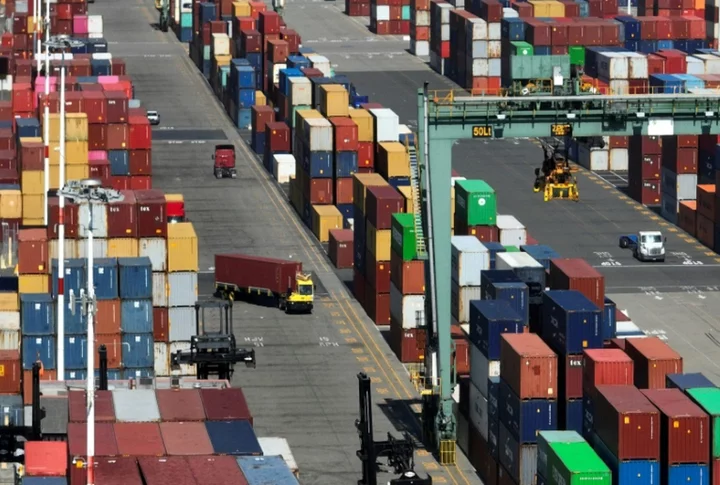A rise in imports widened the US trade deficit in July, government data showed Wednesday, although the increase was smaller than analysts had expected.
The country's trade gap grew to $65.0 billion in July, up from June's revised $63.7 billion figure, the Commerce Department said.
But this remained below the average for the second quarter as calculated by analysts.
In the latest figures, imports picked up 1.7 percent to $316.7 billion while exports rose 1.6 percent to $251.7 billion.
In particular, imports of consumer goods such as mobile phones and pharmaceutical preparations increased, alongside semiconductors, Wednesday's report showed.
While the US economy has showed signs of slowing, resilient consumer spending has helped boost US trade.
But this could weaken as rapid interest rate hikes by the central bank -- aimed at lowering inflation and cooling demand -- ripple through the world's biggest economy.
- Renewed weakness -
"There is still some demand globally for US products," said EY chief economist Gregory Daco. "But overall export volumes remain lower relative to last year."
Among exports of goods in July, those of automotive vehicles, parts and engines picked up, as did industrial supplies.
Domestic demand remains "relatively resilient" as well, he told AFP.
"There's been a slowdown but there hasn't been a massive pullback and that's the main factor that has led to this situation," he added, referring to the rise in imports.
Oxford Economics US economist Matthew Martin said that although trade levels rose in July, "the outlook for both exports and imports remains sluggish."
"Foreign demand for exports is deteriorating, and the recent strengthening of the dollar will weigh on exports with a lag," he said in a note.
"Meanwhile, signs are emerging of flagging strength in consumer spending as excess savings dry up and the labor market softens, which will dampen demand for imports going into peak shipping season," he added.
In July, trade deficit in goods with China rose $1.2 billion to $24.0 billion on a bigger increase in imports than exports.
bys/dw









